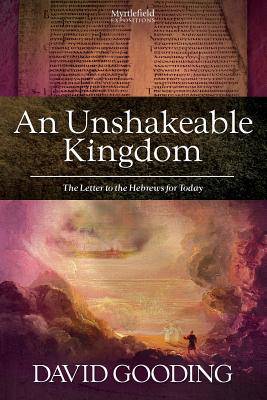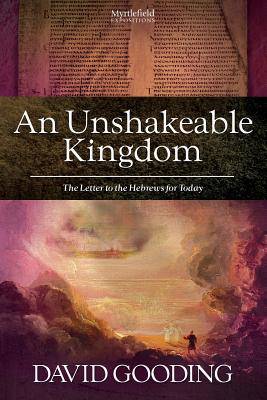
En raison d'une grêve chez bpost, votre commande pourrait être retardée. Vous avez besoin d’un livre rapidement ? Nos magasins vous accueillent à bras ouverts !
- Retrait gratuit dans votre magasin Club
- 7.000.000 titres dans notre catalogue
- Payer en toute sécurité
- Toujours un magasin près de chez vous
En raison de la grêve chez bpost, votre commande pourrait être retardée. Vous avez besoin d’un livre rapidement ? Nos magasins vous accueillent à bras ouverts !
- Retrait gratuit dans votre magasin Club
- 7.000.0000 titres dans notre catalogue
- Payer en toute sécurité
- Toujours un magasin près de chez vous
Description
The Letter to the Hebrews contains some of the New Testament's best-loved passages as well as some of its most difficult. It has stirred the hearts of generations of Christians with its visions of the exalted Christ, his deity, humanity and sufferings, and his fulfilment of the Old Covenant by becoming a superior sacrifice and a High Priest of the New Covenant. Its examples of the faithful obedience of men and women like Abraham and Sarah who were 'looking for a city whose builder and maker is God' continue to spur on multitudes to greater devotion in their own journey of faith. Yet this same letter, with its solemn warnings, has also brought distress to many and caused some to question their own faith, if not their very salvation. In a clear and concise manner informed by pastoral concern, David Gooding explains the meaning of Hebrews' warnings as he expounds the letter as a whole. He carefully examines the position and temptations of its original readers in the first century. Many were undergoing such severe persecution that they might easily have wondered why, if Jesus really were the Messiah, they had to experience such pain and loss. He expounds its major themes in order to show that its unified message is that hope and enduring faith in Jesus the Messiah, the Son of God, will never be put to shame. As he guides us step by step, he reaches outside the limits of the letter itself in order to explore rich fields of Old Testament history, prophecy, ritual and poetry from which the letter has drawn so many of its insights. This practical and readable exposition elucidates Hebrews' searching questions about the progress we are making in our own pilgrimage of faith. It is an invaluable help for understanding that both its beauties and its difficulties are intended to strengthen that faith. For, as the letter's original readers discovered, faith finds its only secure resting place in the true and coming King whose kingdom will stand even when everything else is shaken to pieces.
Spécifications
Parties prenantes
- Auteur(s) :
- Editeur:
Contenu
- Nombre de pages :
- 302
- Langue:
- Anglais
Caractéristiques
- EAN:
- 9781874584360
- Date de parution :
- 01-06-13
- Format:
- Livre broché
- Format numérique:
- Trade paperback (VS)
- Dimensions :
- 152 mm x 229 mm
- Poids :
- 403 g

Les avis
Nous publions uniquement les avis qui respectent les conditions requises. Consultez nos conditions pour les avis.






